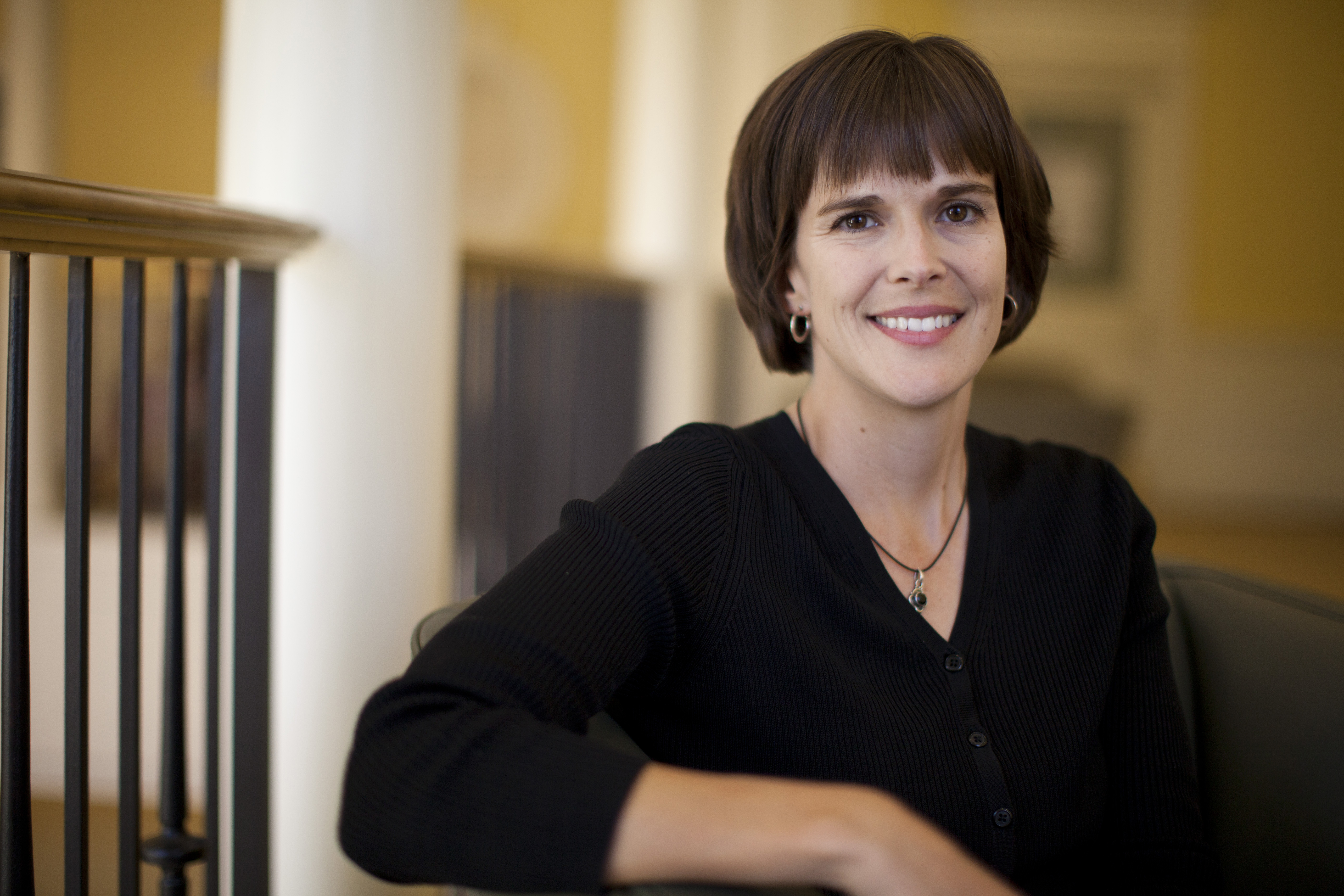November 21, 2011 — Amanda Kibler and Natalia Palacios, assistant professors in the University of Virginia's Curry School of Education, have received a grant for $39,589 from the Spencer Foundation for their work on language development in Latino preschoolers
The foundation awards grants for educational improvement research.
The study, "The Literacy and Language Practices of Latino Families of Preschool-Age Children in the New Latino Diaspora: An Ethnographic Exploration," examines low-income, Spanish-speaking parents' approaches to language with their preschool-aged children. The study currently involves more than 100 Central Virginia families.
Kibler said the duo is concerned with academic underachievement in the growing Latino population in schools, and the study aims to eventually understand what schools can do to improve these students' classroom performance.
Ultimately, Kibler and Palacios want to create materials for both teachers and families to facilitate Latino students' language development. These materials will help teachers better understand their students' linguistic capabilities in both English and Spanish.
Kibler put the study's question quite simply: "How can we leverage the strengths of Latino children and families to improve educational opportunities and outcomes?"
The study has three main components: interviews, language assessments and observations in the children's homes and schools. Currently, Kibler and Palacios are in the midst of the language assessments. The Spencer Foundation grant will support the home observations, and school observations will last at least one year once the children enter kindergarten.
Language development begins at a young age and sets the foundation for the rest of the children's lives. Therefore, it is essential for this study to analyze the early years of a bilingual child's language growth, Palacios said. "Early learning experiences have long-term impacts on students' academic abilities," she said.
Palacios explained that understanding home environments before the transition to schooling is extremely important to the study. "It's a rich picture of parenting, language interactions, family routines, and the role of siblings" in regard to language development, she said.
Kibler and Palacios hope to discover what types of language and literacy resources Latino parents use with their pre-school children and how these resources relate to the children's proficiencies in English and Spanish.
Palacios has a close connection to the study's concept; she moved to the United States from Colombia when she was 6 years old. She saw many of her friends struggling with the same language-development experiences as the children she is studying today.
Kibler, too, had a childhood that led her to study bilingual language development. She grew up in south Texas, which is home to a strong bilingual community. As a teacher in that same area, Kibler witnessed firsthand how bilingual students developed their linguistic capacities in supportive school environments.
According to Palacios, the study's early findings suggest that families' routines, especially reading and nighttime rituals, correlate with children's language preferences. However, these conclusions are subject to change with the continuation of the study.
The foundation awards grants for educational improvement research.
The study, "The Literacy and Language Practices of Latino Families of Preschool-Age Children in the New Latino Diaspora: An Ethnographic Exploration," examines low-income, Spanish-speaking parents' approaches to language with their preschool-aged children. The study currently involves more than 100 Central Virginia families.
Kibler said the duo is concerned with academic underachievement in the growing Latino population in schools, and the study aims to eventually understand what schools can do to improve these students' classroom performance.
Ultimately, Kibler and Palacios want to create materials for both teachers and families to facilitate Latino students' language development. These materials will help teachers better understand their students' linguistic capabilities in both English and Spanish.
Kibler put the study's question quite simply: "How can we leverage the strengths of Latino children and families to improve educational opportunities and outcomes?"
The study has three main components: interviews, language assessments and observations in the children's homes and schools. Currently, Kibler and Palacios are in the midst of the language assessments. The Spencer Foundation grant will support the home observations, and school observations will last at least one year once the children enter kindergarten.
Language development begins at a young age and sets the foundation for the rest of the children's lives. Therefore, it is essential for this study to analyze the early years of a bilingual child's language growth, Palacios said. "Early learning experiences have long-term impacts on students' academic abilities," she said.
Palacios explained that understanding home environments before the transition to schooling is extremely important to the study. "It's a rich picture of parenting, language interactions, family routines, and the role of siblings" in regard to language development, she said.
Kibler and Palacios hope to discover what types of language and literacy resources Latino parents use with their pre-school children and how these resources relate to the children's proficiencies in English and Spanish.
Palacios has a close connection to the study's concept; she moved to the United States from Colombia when she was 6 years old. She saw many of her friends struggling with the same language-development experiences as the children she is studying today.
Kibler, too, had a childhood that led her to study bilingual language development. She grew up in south Texas, which is home to a strong bilingual community. As a teacher in that same area, Kibler witnessed firsthand how bilingual students developed their linguistic capacities in supportive school environments.
According to Palacios, the study's early findings suggest that families' routines, especially reading and nighttime rituals, correlate with children's language preferences. However, these conclusions are subject to change with the continuation of the study.
— By Lisa Littman
Media Contact
Article Information
November 21, 2011
/content/curry-study-wins-40000-grant-study-latino-preschoolers-language-acquisition

